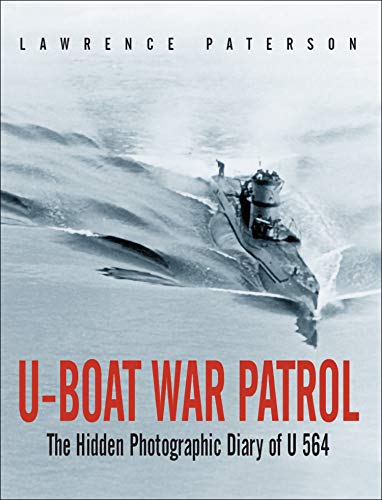
Shadow over the Atlantic
by Robert Forsyth
"The Luftwaffe and the U-boats: 1943–45"
Popularity
3.79 / 5
* A book's popularity is determined by how it compares to all other books on this website.
Where to buy?
Buy from Amazon* If you buy this book through the link above, we may receive a small commission at no extra cost to you.
Shadow over the Atlantic by Robert Forsyth
Details
War:
World War II
Perspective:
Submarines
Military Unit:
Kriegsmarine
True Story:
Yes
Biography:
No
Page Count:
354
Published Date:
2017
ISBN13:
9781472820471
Description
Main Themes and Topics
In "Shadow over the Atlantic," Robert Forsyth meticulously explores the strategic and tactical role of German reconnaissance operations during World War II, focusing on the Fernaufklärungsgruppe (FAGr) 5 'Atlantik'. The book delves into the interplay between air reconnaissance and U-boat warfare, highlighting the significant impact of surveillance on naval battles. Forsyth touches upon themes such as military innovation, the technological advancement of radar and electronic intelligence, and the strategic importance of information warfare. Through a historical lens, the book examines how FAGr 5 effectively served as the eyes of Admiral Karl Dönitz's U-boat operations, thus playing a pivotal role in the maritime conflict between the Axis and Allied powers.
Writing Style and Tone
Robert Forsyth is known for his detailed and precise writing style, which is evident in "Shadow over the Atlantic." His narrative is rich with historical data, reflecting a commitment to accuracy and thoroughness. Forsyth's tone is analytical yet accessible, making intricate military and technological subjects understandable for readers with varying levels of familiarity with World War II history. The author combines scholarly research with engaging storytelling, drawing the reader into the strategic world of wartime reconnaissance.
Brief Summary
"Shadow over the Atlantic" chronicles the operations of the German Luftwaffe's reconnaissance unit, FAGr 5 'Atlantik', during the critical years of World War II. Tasked with supporting U-boat operations against Allied convoys, FAGr 5 utilized advanced technology, such as search radar and electronic intelligence devices, to locate and track targets across vast stretches of the Atlantic Ocean. The book provides a comprehensive overview of the formation, missions, and impact of this unit, drawing from newly uncovered historical records to shed light on a previously under-documented aspect of the war. Forsyth's work offers a compelling narrative of how the integration of air reconnaissance and maritime warfare influenced the outcome of naval engagements during the war.









